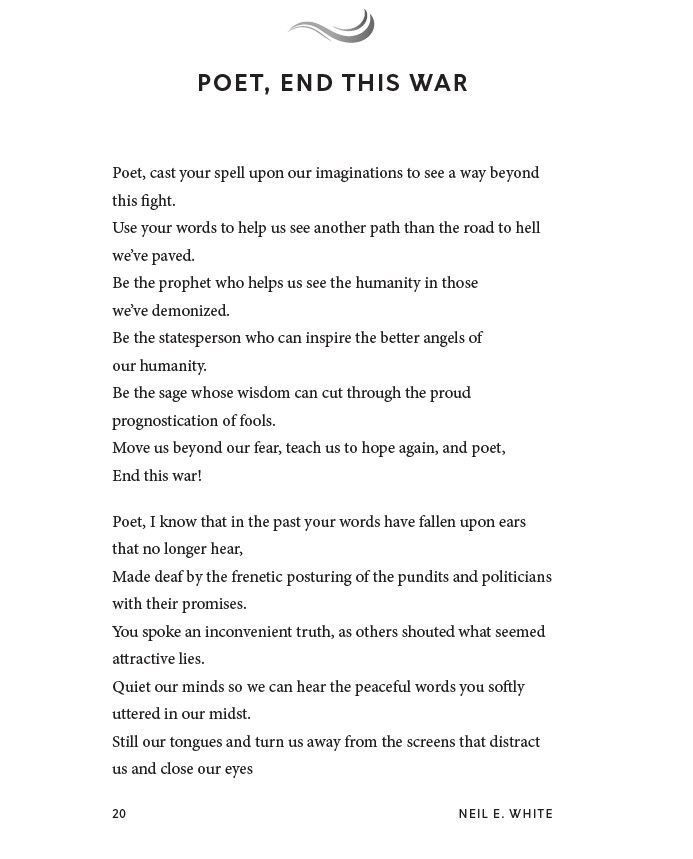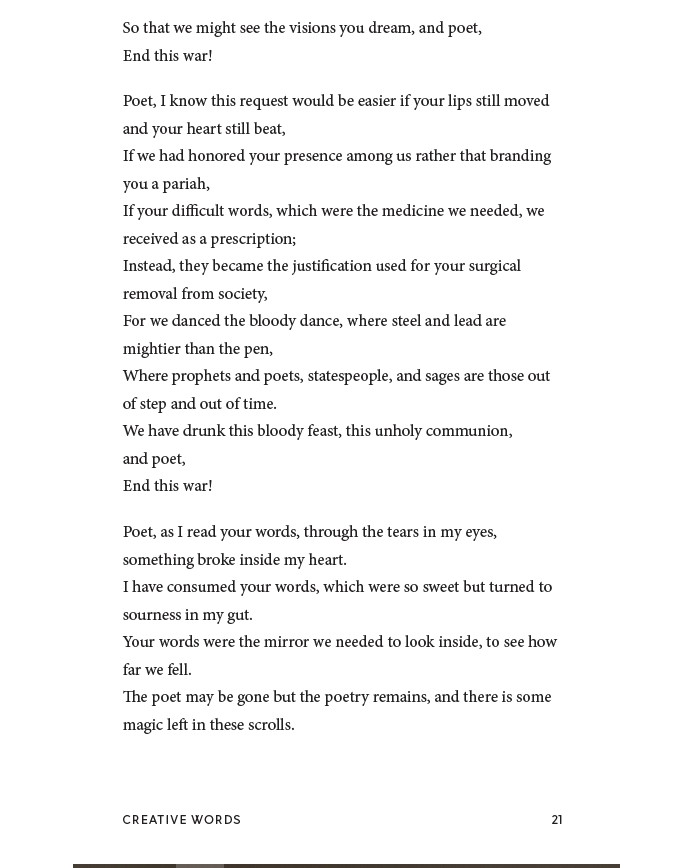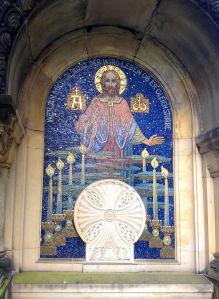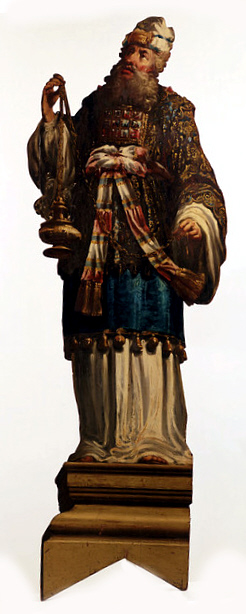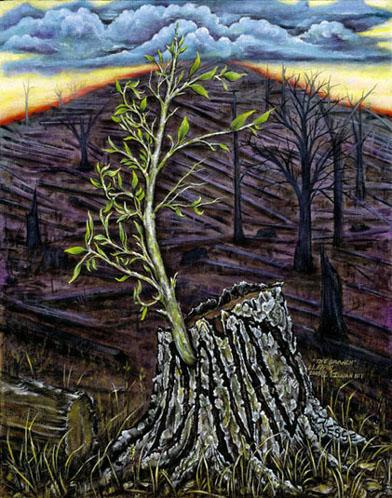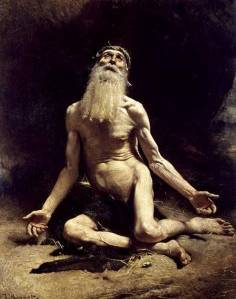
The Death of Ahab from Gustave Dore’s English Bible (1866)
1 Kings 22: 1-28 King Ahab and King Jehoshaphat Prepare for War with Aram
1 For three years Aram and Israel continued without war. 2 But in the third year King Jehoshaphat of Judah came down to the king of Israel. 3 The king of Israel said to his servants, “Do you know that Ramoth-gilead belongs to us, yet we are doing nothing to take it out of the hand of the king of Aram?” 4 He said to Jehoshaphat, “Will you go with me to battle at Ramoth-gilead?” Jehoshaphat replied to the king of Israel, “I am as you are; my people are your people, my horses are your horses.”
5 But Jehoshaphat also said to the king of Israel, “Inquire first for the word of the LORD.” 6 Then the king of Israel gathered the prophets together, about four hundred of them, and said to them, “Shall I go to battle against Ramoth-gilead, or shall I refrain?” They said, “Go up; for the LORD will give it into the hand of the king.” 7 But Jehoshaphat said, “Is there no other prophet of the LORD here of whom we may inquire?” 8 The king of Israel said to Jehoshaphat, “There is still one other by whom we may inquire of the LORD, Micaiah son of Imlah; but I hate him, for he never prophesies anything favorable about me, but only disaster.” Jehoshaphat said, “Let the king not say such a thing.” 9 Then the king of Israel summoned an officer and said, “Bring quickly Micaiah son of Imlah.” 10 Now the king of Israel and King Jehoshaphat of Judah were sitting on their thrones, arrayed in their robes, at the threshing floor at the entrance of the gate of Samaria; and all the prophets were prophesying before them. 11 Zedekiah son of Chenaanah made for himself horns of iron, and he said, “Thus says the LORD: With these you shall gore the Arameans until they are destroyed.” 12 All the prophets were prophesying the same and saying, “Go up to Ramoth-gilead and triumph; the LORD will give it into the hand of the king.”
13 The messenger who had gone to summon Micaiah said to him, “Look, the words of the prophets with one accord are favorable to the king; let your word be like the word of one of them, and speak favorably.” 14 But Micaiah said, “As the LORD lives, whatever the LORD says to me, that I will speak.”
15 When he had come to the king, the king said to him, “Micaiah, shall we go to Ramoth-gilead to battle, or shall we refrain?” He answered him, “Go up and triumph; the LORD will give it into the hand of the king.” 16 But the king said to him, “How many times must I make you swear to tell me nothing but the truth in the name of the LORD?” 17 Then Micaiah said, “I saw all Israel scattered on the mountains, like sheep that have no shepherd; and the LORD said, ‘These have no master; let each one go home in peace.'” 18 The king of Israel said to Jehoshaphat, “Did I not tell you that he would not prophesy anything favorable about me, but only disaster?”
19 Then Micaiah said, “Therefore hear the word of the LORD: I saw the LORD sitting on his throne, with all the host of heaven standing beside him to the right and to the left of him. 20 And the LORD said, ‘Who will entice Ahab, so that he may go up and fall at Ramoth-gilead?’ Then one said one thing, and another said another, 21 until a spirit came forward and stood before the LORD, saying, ‘I will entice him.’ 22 ‘How?’ the LORD asked him. He replied, ‘I will go out and be a lying spirit in the mouth of all his prophets.’ Then the LORD said, ‘You are to entice him, and you shall succeed; go out and do it.’ 23 So you see, the LORD has put a lying spirit in the mouth of all these your prophets; the LORD has decreed disaster for you.”
24 Then Zedekiah son of Chenaanah came up to Micaiah, slapped him on the cheek, and said, “Which way did the spirit of the LORD pass from me to speak to you?” 25 Micaiah replied, “You will find out on that day when you go in to hide in an inner chamber.” 26 The king of Israel then ordered, “Take Micaiah, and return him to Amon the governor of the city and to Joash the king’s son, 27 and say, ‘Thus says the king: Put this fellow in prison, and feed him on reduced rations of bread and water until I come in peace.'” 28 Micaiah said, “If you return in peace, the LORD has not spoken by me.” And he said, “Hear, you peoples, all of you!”
King Ahab has occupied a significant place in the narrative of 1 Kings since his introduction in 1 Kings 16:29. Ahab as portrayed in 1 Kings serves Baal when it served his interest, strengthening the alliances with Tyre and Sidon and his marriage with Jezebel, has served the LORD when it was beneficial. His reign has seen both remarkable prosperity and crippling drought, miraculous military victories, and continual prophetic condemnation. Ahab seems to have modeled his reign after Solomon. Like Solomon he is led astray to worship other gods by his Phoenician wife. Elijah, other unnamed prophets, members of the sons of prophets, and finally Micaiah will be God’s messengers to this king who reigns over Israel for twenty-two years. In the eyes of many of Ahab’s contemporaries he was a successful king who acquired wealth, military power, land, and who benefited from trade. In the eyes of the narrator of 1 Kings:
Indeed, there was no one like Ahab, who sold himself to do what was evil in the sight of the LORD, urged on by his wife Jezebel. He acted most abominably in going after idols, as the Amorites had done, whom the LORD drove out before the Israelites. 1 Kings 21: 25-26
No amount of worldly success can mask the pestilence of idolatry and the ways in which the reign of Ahab adopts the practices of the surrounding nations instead of the covenant of God. Now after twenty-two years in power the LORD has decided to entice Ahab into a battle where will fall.
Three years[1]after the LORD delivered a crushing defeat to King Ben-hadad of Aram and King Ahab’s negotiation of a treaty with the humiliated Ben-hadad (see 1 Kings 20) the situations are reversed. Now King Ahab feels like he has the military might to be the aggressor and claim the land that was supposed to be returned in the treaty. The longstanding conflict between Judah and Israel has been settled and now King Jehoshaphat of Judah is called upon to be an ally in the coalition to retake Ramoth-gilead. King Ahab has been successful against the emergent Assyrian force to the north and now seems to be in a position of power to reclaim land that was once a part of the territory of Israel. The text suggests an unequal alliance between Jehoshaphat and Ahab, where Jehoshaphat is subservient to Ahab. It is likely that Israel is the stronger power, and that Jehoshaphat has negotiated peace with his northern neighbor at least initially by military alliance where the men and horses of Judah will fight under the King of Israel. Even after the negative prophecy by Micaiah, Jehoshaphat will not pull out of the fight.
The role of the prophet has increased throughout the narrative of 1 Kings. Prophets existed prior to 1 Kings in Hebrew society, the most well-known example is Nathan who confronts David, but in Northern Israel after separation from the temple in Jerusalem prophets are central to the story. There are probably several factors for this including the loss of access to the temple in Jerusalem where priests performed many of the ‘divination’ functions of discerning God’s will that now prophets will fill. Prophets also are portrayed as a part of the surrounding culture and throughout the narrative of 1 Kings there are prophets of Baal and Asherah and the rise of the prophetic may evolve out of the experience of the surrounding cultures having people who have the role of speaking on behalf of their gods. Finally, the narrative of Israel after the separation from Judah is one where the priestly functions have been taken over by non-Levite members appointed by the kings who have introduced the use of images like the golden calves of Jeroboam (1 Kings 12: 25-33) or directed towards other gods like Baal or Asherah. The rise of the prophetic role (both for the LORD and other gods) may explain why for the first-time prophets are asked to discern God’s will before going to battle instead of priests. Previously the priests would use the Urim and Thummim (part of the priestly breastplate built for Aaron) to discern God’s will. (Numbers 27:20, 1 Samuel 30:7-8)
The four hundred prophets of Ahab echo the four hundred prophets of Asherah which were mentioned in 1 Kings 18:19. The NRSV’s translation of this passage seems to indicate that Ahab’s prophets are all ‘prophets of the LORD’ but there are several variations of this text in Hebrew and the affiliation of these prophets with the LORD the God of Israel is often ambivalent in these texts. For example, the interpreters of the NIV show the ambivalence of the text in several choices. King Jehoshaphat asks for an inquiry for guidance from the LORD the God of Israel whom he faithfully follows. When these four hundred prophets answer the NRSV goes with the translation of the name of the God of Israel (YHWH) which is indicated by the capitalized LORD.[2] Yet the NIV in contrast goes with some of the best manuscripts which render Adonai here instead and thus translates it as Lord, which may not refer to the God of Israel. The NIV also follows the Septuagint and Vulgate[3] by translating Jehoshaphat’s response to Ahab as, “Is there not a prophet of the LORD here whom we can inquire of?” Choon-Leong Seow in the NIB translates the Hebrew literally as, “Is there not here a prophet of the LORD anymore of whom we may inquire?” (NIB III:162) At best the linkage of Ahab’s four hundred prophets with the God of Israel is ambiguous. Even if they are linked to the God of Israel they clearly are aligned with the royal desires of the king and are intent on promoting Ahab’s expansionist policies. To appease Jehoshaphat the prophet Micaiah is sent for who is unambiguously a prophet of the LORD.
Micaiah is instructed when he is summoned to align his words with the prophets already assembled outside of Samaria. Micaiah declares that he will only declare what the LORD the God of Israel shares for him to speak. When Micaiah responds initially to the king to, “Go up and triumph” we are unable to read his mannerisms or tone into the text, but whether it is the positive words or some combination of mannerism and tone it is immediately apparent to King Ahab that he is being mocked. King Ahab in making Micaiah swear to tell the truth by the LORD seems to indicate he is aware that is prophets are not speaking truthfully by divine inspiration. Micaiah’s later reference to Israel being scattered on the mountains is a reference to Ramoth-gilead which is literally ‘the height of Gilead.” The shepherd is a common symbol for the king in Israel, and the reference to sheep without a shepherd is a people without a king or leader.
Micaiah’s vision of a heavenly council debating how to entice[4] Ahab to go to battle at Ramoth-gilead to cause his death indicates the point of the narrative from the divine perspective. The conflict as Ramoth-gilead is a place where the God of Israel is using the conflict between nations to eliminate King Ahab after twenty-two years of leading the people astray. This is a strange story for modern readers who often question the morality of God working through a lying or deceitful spirit[5], but the text is not concerned with morality. As Brueggemann states:
The text does not argue for morality. Rather it argues for willful inscrutability that operates in, with, and under human events in order to curb and finally overthrow excessive human ambition. (Brueggemann, 2000, p. 280)
A spirit in the council argues for a plan to entice Ahab by placing a lying spirit in the words of his prophets, and the LORD declares that this enticement will succeed because Ahab will be hearing what he wants to hear. The truthful message of Micaiah is an uncomfortable truth in the midst of pleasant royal propaganda which is forcefully and graphically articulated by the four hundred prophets of Ahab.
Zedekiah son of Chenaanah has graphically illustrated the message of victory over Aram by placing iron horns on his head and declaring that Israel with gore the Arameans. This imagery of a bull being linked with the northern kingdom goes back to the blessing of Moses in Deuteronomy:
A firstborn bull—majesty is his! His horns are the horns of a wild ox; with them he gores people, driving them to the ends of the earth; such are the myriads of Ephraim, such the thousands of Manasseh. Deuteronomy 33: 17
The association of the image of the bull with Ephraim and Manasseh (the largest tribes of the north) is probably one of the major reasons for the image of the golden calves that Jeroboam uses in 1 Kings 12: 25-33. Yet, the image of the bull is also associated with the golden calf made during the Exodus. (Exodus 32) The prophetic theater between Zedekiah and Micaiah is similar to the conflict between Jeremiah and Hananiah in Jeremiah 27-28. There are two conflicting voices declaring that they are the faithful messengers of the divine will. Zedekiah’s slap of Micaiah is likely a backhanded strike which is gesture meant to humiliate. Like Jeremiah, Micaiah is imprisoned for speaking the unpopular truth and placed in the hands of Joash the ‘king’s son.’[6]
The narrative with its prophetic theater, alliances between kings is all setting the stage for the conflict at Ramoth-gilead where Ahab will be killed. The king has chosen to listen to the lying spirits sent to entice him into the conflict. From the point of view of 1 Kings the primary mover in this scene is the God of Israel who is working in, with, and under the workings of Israel, Judah, and Aram. Ahab and Jehoshaphat seem to know that the words of the four hundred prophets are not true, but they go into battle anyways. Jehoshaphat may not be in a position where he can back out of the conflict without endangering his peace with Israel, but the political consideration of the kings is far less important to the narrative of 1 Kings. What matters in the movement of the LORD of Israel to bring about the death of Ahab.
1 Kings 22: 29-40 The Disastrous Conflict with Aram and the Death of Ahab
29 So the king of Israel and King Jehoshaphat of Judah went up to Ramoth-gilead. 30 The king of Israel said to Jehoshaphat, “I will disguise myself and go into battle, but you wear your robes.” So the king of Israel disguised himself and went into battle. 31 Now the king of Aram had commanded the thirty-two captains of his chariots, “Fight with no one small or great, but only with the king of Israel.” 32 When the captains of the chariots saw Jehoshaphat, they said, “It is surely the king of Israel.” So they turned to fight against him; and Jehoshaphat cried out. 33 When the captains of the chariots saw that it was not the king of Israel, they turned back from pursuing him. 34 But a certain man drew his bow and unknowingly struck the king of Israel between the scale armor and the breastplate; so he said to the driver of his chariot, “Turn around, and carry me out of the battle, for I am wounded.” 35 The battle grew hot that day, and the king was propped up in his chariot facing the Arameans, until at evening he died; the blood from the wound had flowed into the bottom of the chariot. 36 Then about sunset a shout went through the army, “Every man to his city, and every man to his country!”
37 So the king died, and was brought to Samaria; they buried the king in Samaria. 38 They washed the chariot by the pool of Samaria; the dogs licked up his blood, and the prostitutes washed themselves in it, according to the word of the LORD that he had spoken. 39 Now the rest of the acts of Ahab, and all that he did, and the ivory house that he built, and all the cities that he built, are they not written in the Book of the Annals of the Kings of Israel? 40 So Ahab slept with his ancestors; and his son Ahaziah succeeded him.
From the perspective of the narrator of 1 Kings the physical battle’s result has already been determined by the LORD. Ahab will die, the coalition of forces to recapture Ramoth-gilead will collapse and the people will return like sheep without a shepherd. Ahab seems aware of the danger to himself when he disguises himself as a common soldier while telling Jehoshaphat to fight wearing his royal robes. The king of Aram has also declared that King Ahab of Israel is the primary target of his chariot corps. Yet, the scheming of all these kings will be undone by an accidental shot.
The dynamic of Ahab being the primary leader of the army and Jehoshaphat being the subordinate is indicated both by Ahab using Jehoshaphat as a decoy by having him dressed in royal robes while Ahab is disguised as a common soldier, and by the army remaining engaged in the conflict once the chariots of Ben-hadad pursue Jehoshaphat. It is unclear how exactly the chariots of Aram determine that King Jehoshaphat is not their intended target, whether his exclamation is something that indicates he from Judah rather than Israel or whether they get close and identify by sight, but Jehoshaphat’s life is delivered by this realization. From the perspective of 1 Kings the important decision is the divine decision which has determined that Jehoshaphat shall live, and Ahab shall die.
An unknown soldier’s arrow finds the weak point in King Ahab’s armor and wounds him. The soldier ‘innocently’ or ‘unknowingly’ strikes the king of Israel, and it is possible this could be a friendly fire incident where he is wounded by one of his soldiers.[7]Although Ahab orders his driver to take him out of the fighting, the king does not receive the medical attention the wound requires. Perhaps to maintain the momentum of the battle he tries to continue to direct the conflict, but by nightfall blood loss, heat, and exertion have exhausted his strength and he dies. Without the leadership of King Ahab the forces of Israel and Judah disperse and return to their homes.
King Ahab’s reign ends with his blood pooling in a chariot only to be washed in the pool of Samaria where the dogs will drink his blood and prostitutes wash themselves in it. There is some tension between this description and the prophecy of Elijah in 1 Kings 21: 19-24 and the text does not attempt to fully harmonize between the words of Elijah and the testimony of Ahab’s death. Instead, it is content to report the return of the dead king who is buried as a king of Israel, but still who is dishonored by dogs drinking his blood as it is washed away of people (including prostitutes) bathing in the waters which have his royal blood in them.
King Ahab’s reign may be prosperous for Israel’s military and financial might, but it also leads the people further from the ways of the God of Israel. He is able to develop Israel into a military power in the region and through trade to build up Samaria and several other cities into walled cities with significant buildings. The house of ivory is likely an ostentatious structure, perhaps with panels and appointments of ivory (Cogan, 2001, p. 495) where ivory is one of the many signs of wealth in the ancient world. Ultimately the Book of the Annals of the Kings of Israel would probably paint a prosperous picture of the reign of Ahab, but 1 Kings views Ahab as a king who was repeatedly confronted by the prophets and demonstrations of the power of the LORD and chose to continually attempt to find his path to self-reliance through his military might, trading partnerships, and diplomatic maneuvering. Regardless of the prosperity Israel may find under Ahab, the narrator of 1 Kings views his reign as a time that brings evil to the land.
1 Kings 22: 41-50 The Faithful Reign of King Jehoshaphat of Judah
41 Jehoshaphat son of Asa began to reign over Judah in the fourth year of King Ahab of Israel. 42 Jehoshaphat was thirty-five years old when he began to reign, and he reigned twenty-five years in Jerusalem. His mother’s name was Azubah daughter of Shilhi. 43 He walked in all the way of his father Asa; he did not turn aside from it, doing what was right in the sight of the LORD; yet the high places were not taken away, and the people still sacrificed and offered incense on the high places. 44 Jehoshaphat also made peace with the king of Israel.
45 Now the rest of the acts of Jehoshaphat, and his power that he showed, and how he waged war, are they not written in the Book of the Annals of the Kings of Judah? 46 The remnant of the male temple prostitutes who were still in the land in the days of his father Asa, he exterminated.
47 There was no king in Edom; a deputy was king. 48 Jehoshaphat made ships of the Tarshish type to go to Ophir for gold; but they did not go, for the ships were wrecked at Ezion-geber. 49 Then Ahaziah son of Ahab said to Jehoshaphat, “Let my servants go with your servants in the ships,” but Jehoshaphat was not willing. 50 Jehoshaphat slept with his ancestors and was buried with his ancestors in the city of his father David; his son Jehoram succeeded him.
Jehoshaphat was introduced in the conflict at Ramoth-gilead, but now we are finally introduced to him in the typical format of 1 Kings. Since the split of Israel and Judah, the majority of the attention of 1 Kings has been focused on Israel, and the trend continues as the report of the positively evaluated reign of Jehoshaphat is dwarfed by the reports of the shorter reigns of Ahab and Ahaziah. Although the books of 1 and 2 Kings are named for the procession of kings, the interest of the narrator is drawn to the prophets who are mainly active in Israel instead of Judah at this point. As Israel continue to know instability, even while it may be militarily and financially prosperous, Judah will know sixty-six combined years of good Davidic rulers (as evaluated by 1 Kings) under Asa and his son Jehoshaphat.
Jehoshaphat continues his father’s religious reforms and does eliminate the cultic prostitutes[8] and his reign is viewed (from the perspective of 1 Kings) as a faithful one. His major achievement is ending the long-standing war with Israel. This may be viewed ambivalently by the text since there are multiple times where his alliance with Israel leads to disaster. We will learn that a part of this alliance is marrying his son Jehoram to the daughter (or granddaughter) of Ahab and Jezebel which will later lead to disaster in 2 Kings. Judah is able to reign over Edom as well and the possession of Ezion-geber leads Judah to create a trading fleet to reconnect with Solomon’s trade for the gold of Ophir. We do not know why Jehoshaphat rejected the offer of King Ahaziah to send his people with the ships of Judah, but Ahaziah’s trading expertise was probably significantly greater due to their linkage with Tyre and Sidon. Jehoshaphat attempts to bring the prosperity of Solomon back to Israel but despite the loss of ships, and the frustrating defeats when he partners with Israel his long and faithful reign is summarized by only nine verses in the text.
1 Kings 22: 51-53 The Brief Reign of King Ahaziah of Israel
51 Ahaziah son of Ahab began to reign over Israel in Samaria in the seventeenth year of King Jehoshaphat of Judah; he reigned two years over Israel. 52 He did what was evil in the sight of the LORD, and walked in the way of his father and mother, and in the way of Jeroboam son of Nebat, who caused Israel to sin. 53 He served Baal and worshiped him; he provoked the LORD, the God of Israel, to anger, just as his father had done.
1 Kings ends in an awkward place with the brief notation on the beginning of the brief reign of Ahaziah. 2 Kings will begin with Elijah denouncing Ahaziah as he continues to oppose God’s ways in Israel. The kings of Israel may be the primary markers of time, but the primary markers of meaning are the prophets. Elijah has been absent from the scene at various moments in Ahab’s reign, but he will return for one final condemnation as Ahaziah seeks the intercession of Baal-zebub instead of the LORD of Israel. But for now, I am ending this journey through the books of Kings at the ending of 1 Kings. The canonical division of the story is at an odd place since it pauses in the midst of the reign of Ahaziah. Although this is the pause in the middle of a story, it is also the completion of a journey through 1 Kings. I will be taking a break from the narrative of the history of Israel for a time but will likely return to complete the second half of the book of Kings in the future.
[1] Three is a ‘typological number’ indicating a short period of time in Hebrew so the conflict may not be literally three years after the defeat of Ben-hadad in 1 Kings 20. Historical scholars who have tried to fix a date for this based on Ahab’s participation with Aram in the conflict against Shalmaneser III at Qarqar have said that if Ahab is the king it would take place in 852 BCE.
[2] Throughout the Hebrew Scriptures the divine name YHWH is always marked with vowels to indicate the reader is to say Adonai instead of uttering the name of God (the commandment of honoring God’s name is behind this practice), but the consonants are left to indicate the name of God. This is reflected in English translations by the word LORD written in all capital letters. When the consonants for the word Adonai is present in Hebrew it is written Lord with the only the first letter capitalized when appropriate.
[3] The Septuagint is the Greek translation of the Hebrew Scriptures, and the Vulgate is the Latin translation which are both ancient translations of the text. Mordechai Cogan notes this (Cogan, 2001, p. 490)
[4] Hebrew patah throughout this passage.
[5] Reference to a deceitful spirit seems to come from the LORD are rare but they are present in scripture. See for example Ezekiel 14:9 and 2 Thessalonians 2:11
[6] The title ‘king’s son’ may refer to a person who is literally an offspring of the king but may also refer to various court officials and servants loyal to the king. (Cogan, 2001, pp. 492-493)
[7] Even with disciplined professional soldiers, friendly fire occurs in the chaos of combat. Much of the armies of Israel, Judah, and Aram would not be professional soldiers. Whether this is a ‘lucky shot’ by an Aramean or an ‘unlucky shot’ from the army of King Ahab is ultimately irrelevant because this innocent shot accomplishes the divine will.
[8] There is some controversy over the translation of the Hebrew qedesim as male prostitutes. It is unclear exactly what role these individuals had and whether it was sexual in nature, but it is definitely viewed in the text as a sign of idolatry. I am following Choon-Leong Seow’s recommendation of translating this as cultic prostitutes which may not be exclusively male. (NIB III: 168)



